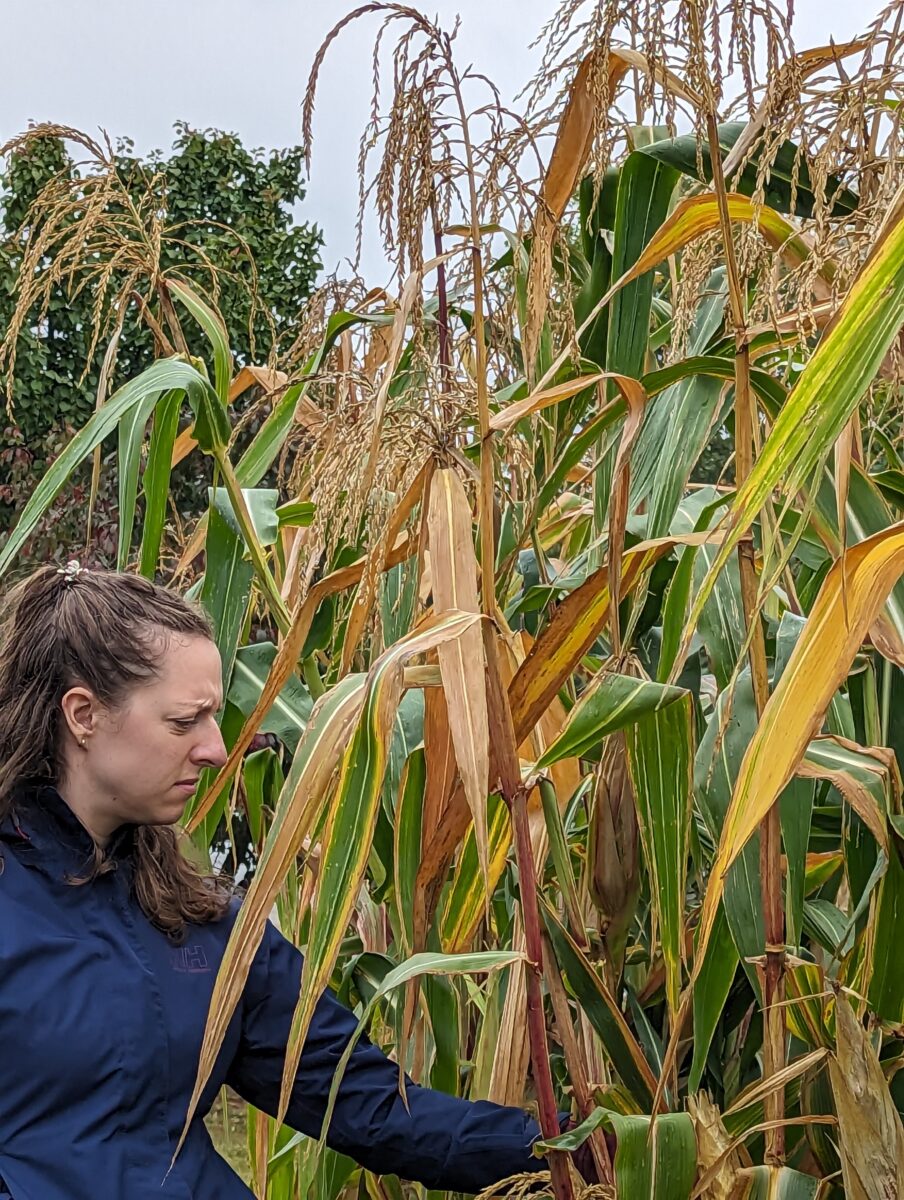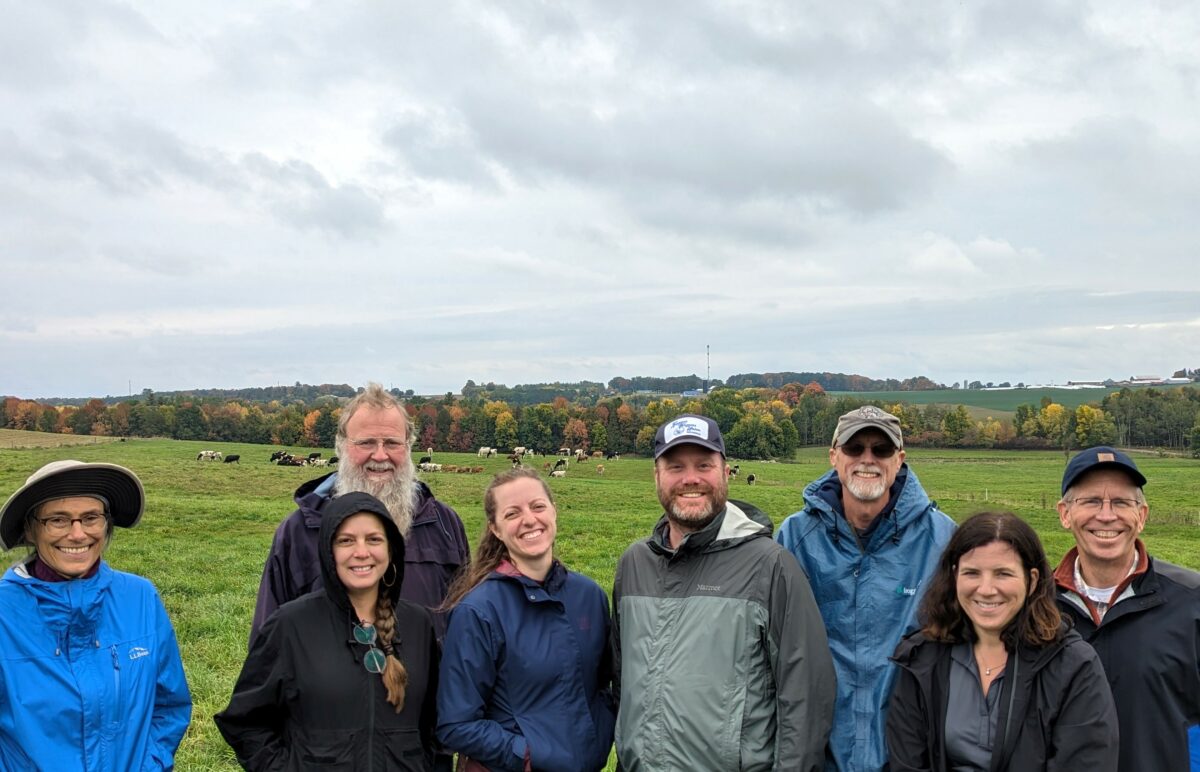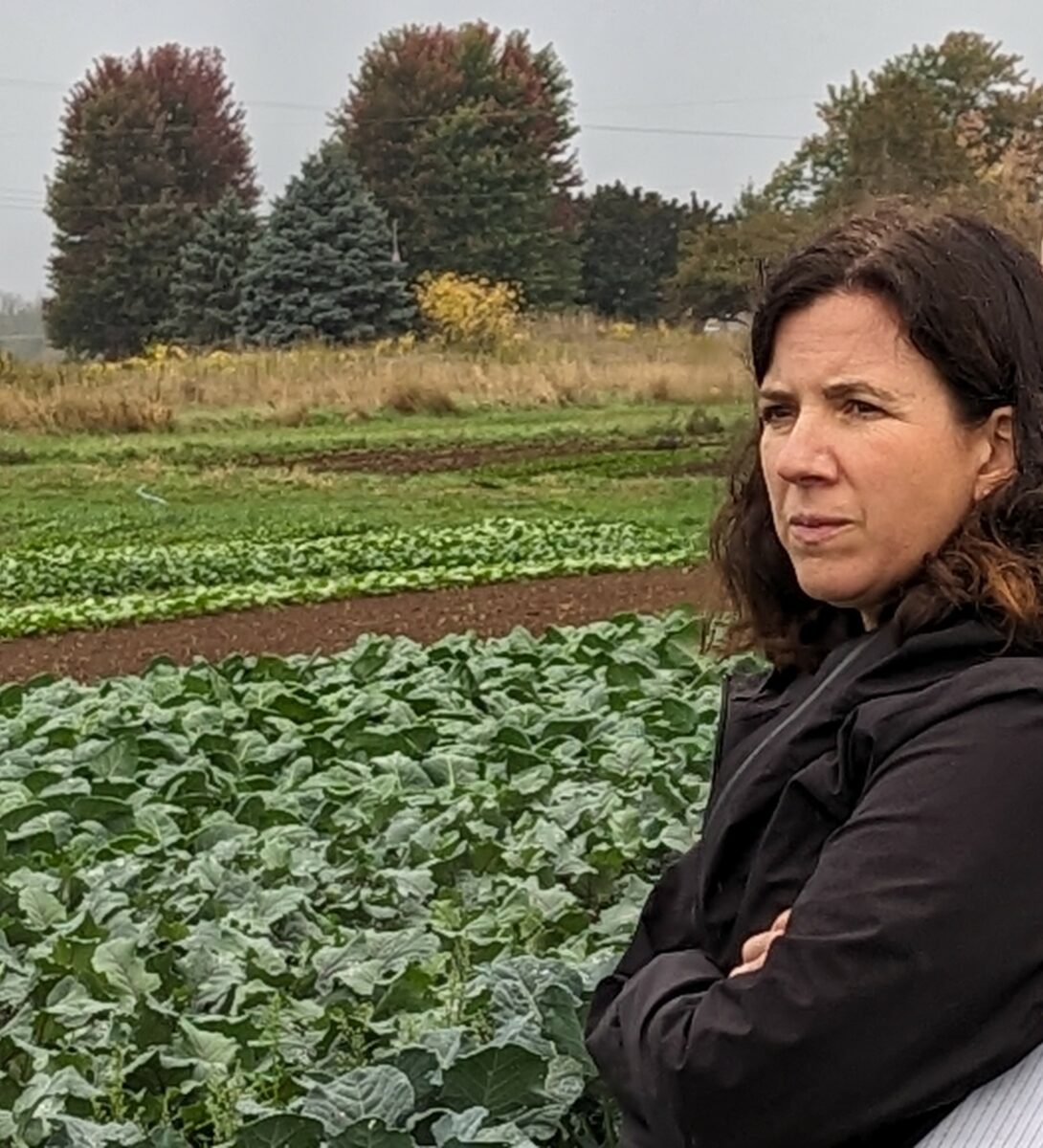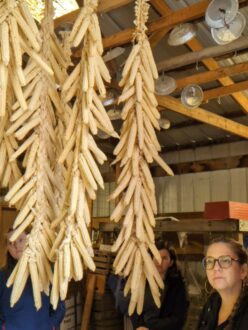They gathered from their respective home waters—the Yahara, Shenendoah, Black Root, Vermillion, Marias, from Kansas, and all the way to the Delta and Everglades Basin—in fellowship to learn from the foodsheds of the dairy state and each other.
State-based study tours are the current that charts the course for participants of the SARE Fellows program. The tours feature a mix of farm visits and deep dives into reading the farm landscapes and are held every spring and fall throughout the United States. I had the good fortune to journey from my backyard up Bear Creek and join the cohort of SARE Fellows in NE Wisconsin for the day. Water, the ever-present current in Wisconsin but largely absent and erratic from the sky this season, guided our inquiry.

"I’m here, in part, to learn perspectives from other educators and different ways they interact with farmers," shared Mary Love Tagert, with Mississippi State University Extension. Our site visits featured water and climate change adaptations that farmers were puzzling through and adapting to. Our first stop at the heart of the Duck Creek watershed, we navigated different histories of land management that sprouted from the (re)establishment of White Corn at Tsyunhehkwa (Joon-hey-qwa) Farm. There, alongside the heady breath of tobacco plants releasing the soil’s secrets—a mix of sweet ferment, remnant heat and rot—we learned how different food sovereignty efforts can coexist within a Tribe and broader community. The Oneida Nation in Wisconsin has several farm and food security initiatives, from 4 H programs, Farm-to-School, Elder Food Boxes to a Commercial Beef and Bison Farm, canneries and co-ops. Discussion centered on the cultural aspect of food and the importance food plays in many of the traditional Oneida ceremonies. We also learned about the various product lines and education programs in development and the future aspirations of the Oneida Nation.

Sated, our fleet drove upriver to witness water management and waste’s potential at different scales at Tauchen Harmony Valley Dairy. The farm is a multigenerational dairy operation, started in 1975 by Herb and Marlys Tauchen, that is a typical mid-size Wisconsin confinement operation. Right now, the Tauchens are working on integrating grazing, seeding cover crops and filtering leachate through sand/swales before water is discharged to nearby wetlands. We waded further afield from the main milking barns to tour the grazing-based heifer-raising farm developed by Al Tauchen. After his passing, the other family members have continued that operation. We listened to the riff and rip of cows on grass.
We ruminated at the pasture's edge. "I never thought about manure management or had much exposure to cattle," reflected Romina Gazis, a horticulture Extension educator and plant pathologist with Florida State, as she pauses from admiring a spattering of spores settling in the fall fescues. Romina spends much of her work among tropical fruits and horticulturists in South Florida.

Like the ebb and flood of waterways, a dairy farm and a farmer's needs remain fluid. This was evident at Full Circle Community Farm, a fifth-generation family farm in the process of transforming into a community-based organic vegetable and meat farm with shared ownership and a cooperative mindset to support the next flock of livestock, crops and farmers on the land. In Wisconsin, it's hard not to think about water and cows. The next day, the SARE Fellows would gather near Lake Michigan’s shorelines and work with the Saxon Homestead Farm, a fifth-generation family partnership operated by the Klessig family. This would be the Fellows’ "Reading the Farm" stop.
Our bellies full, our minds flooded and new knowledge moored in our hearts, a lone killdeer cried, and it was time to part. I drove home thinking of water (too much or too little), cows, cropping systems, conservation and culture. I thought about how they can coexist at varying scales and intensities, support different clientele and remain threaded together by a culture of care as the climate for farmers everywhere continues to change.
As an agriculture educator, you can continue to adapt and learn concurrently with the farms and land in your care through SARE. To learn more about the SARE Fellows program, how to apply, and ways to grow in your sustainable agriculture career, visit https://www.sare.org/Professional-Development/Fellows-Program.
To learn more about SARE resources and programs in Wisconsin, visit https://northcentral.sare.org/state-programs/wisconsin/.
Erin Schneider works with the NCR-SARE Program as an administrative associate and also co-owns/stewards Hilltop Community Farm in La Valle, WI.
